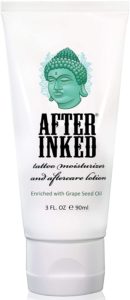Running out of ideas on how to get tattoo itch relief? Is your determination not to scratch weakening with each passing second? Well, you’re in luck. Today, you’ll finally discover several tried-and-tested methods to stop tattoo itching straight away!
Page Contents
Why is my tattoo itching like crazy?
There are quite a few reasons why your tattoo’s itchy. But to better understand why yours itches, let’s break this section into two: new (unhealed) tattoos and old (fully healed) tattoos.
Reasons why NEW tattoos itch
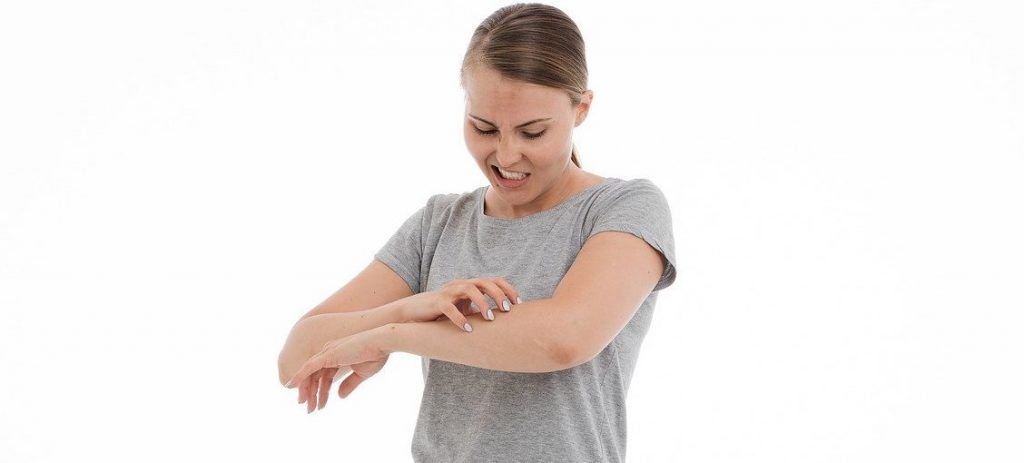
Healing tattoos can itch like crazy, there are no two ways about it. If it’s your first time getting a tattoo, you should know what you’re up against. Here are the top reasons why new tattoos itch:
- It’s part of the tattoo healing process
Your tattoo is technically an open wound. And if you’ve ever been wounded (who hasn’t), you’d know it will start to itch just as it’s about to heal. Right? The same thing goes for a healing tattoo.
Once it stops weeping or oozing plasma, it’s going to scab. A few days later the scabs are going to fall off and the area around the tattoo is going to peel off, revealing the new skin underneath.
So, during this scabbing and peeling stage, is when the itching will be most intense. Dead skin cells are shed and new ones take their place, all these things trigger an itching sensation. When dead skin cells peel off, it’s going to rub against skin that’s still connected to nerve endings, thus causing the itch.
- Regrowth of shaved hairs
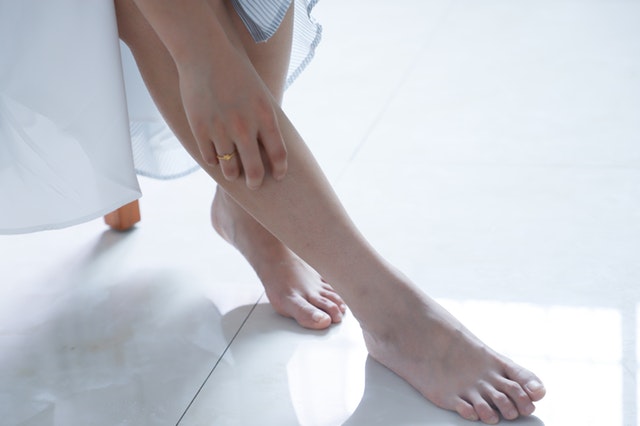
Shaving the area you want to get tattooed on is on your tattooist’s to-do list. So, you don’t need to worry about shaving yourself at home first. Let the professionals do their job – they’ll shave the area carefully to ensure no razor bumps occur. A clean shave will also help the tattooist do a better job – no pesky hairs that could get in the way.
So, the hair’s going to grow back a few days later (hair follicles don’t get destroyed during tattooing). And for many people, this hair growth phase can be pretty itchy. Couple that with a naturally itchy, healing tattoo, and you’ve got the perfect recipe for ultra-itchy skin!
- Pre-existing skin conditions
People with sensitive skin tend to itch more easily than others. This includes people who suffer from conditions like eczema, dermatitis, and psoriasis. Likewise, if you’ve got dry skin, you’ll also be more prone to itchy skin (also known as pruritus).
For best results, tell your tattooist if you have any pre-existing skin conditions. In some cases, it may not be advisable for you to get a tattoo as your skin may reject the ink. Or, the ink can irritate the skin, etc. If you do push through with your appointment, when you get to the healing stage, you’re more likely to experience extreme itchiness!
- Tattoo ink allergy
Itching is just one symptom of a tattoo allergy. It can range from mild itching to driving–you-crazy levels of itching! For mild itching, it’s probably just a normal part of healing. But if the itching becomes super intense, then that’s a different thing altogether.
There are several causes for tattoo ink allergies. These include sensitivity to heavy metals used in ink pigments, photosensitivity, or the body’s just straight-up rejecting the ink and actively trying to get rid of it.
Click here to know more about tattoo ink allergies.
- Tattoo infection
A simple itch isn’t a sign of infection. But if you have other symptoms like fever, pain, swelling, redness, foul odour, and pus, then you most likely have a tattoo infection.
Fortunately, some infections don’t require immediate medical attention. If it’s relatively minor, you can try a few home remedies first. You can clean the area, air it out, and take an over-the-counter anti-inflammatory pill or antibiotic. If the infection seems to be getting worse, seek medical advice.
Reasons why OLD tattoos itch
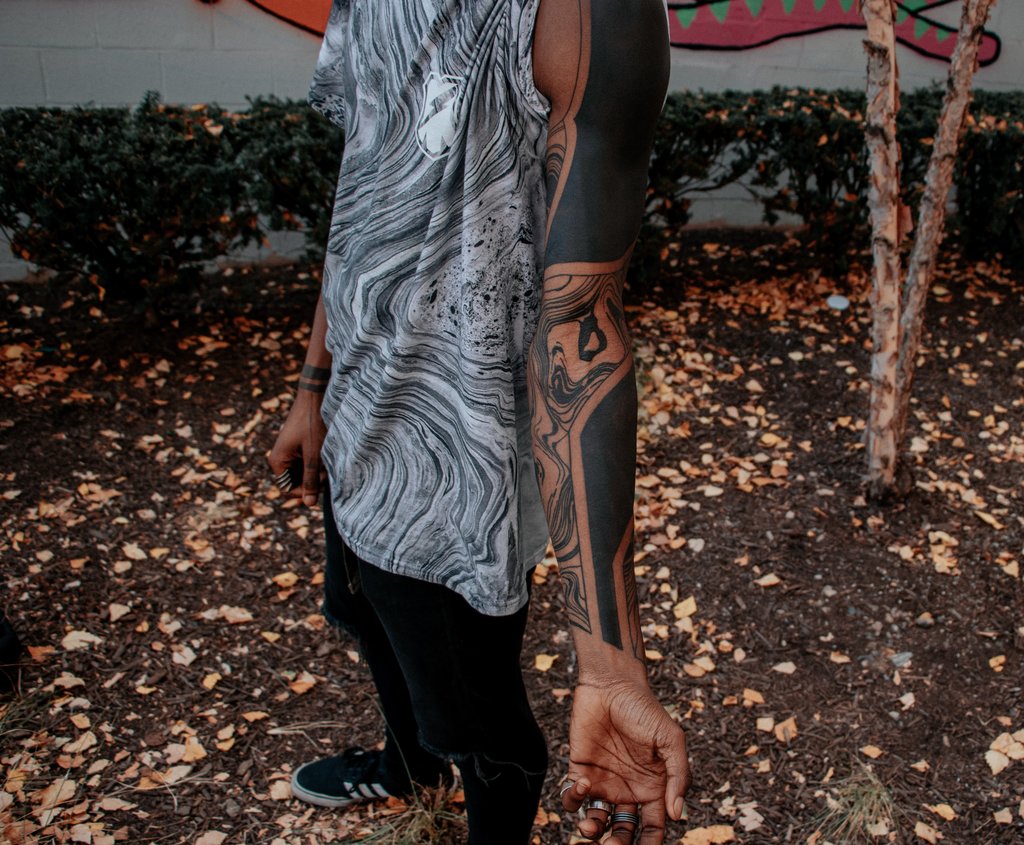
If you’re way past the healing stage, and your tattoo suddenly starts itching, then you’re probably confused as to why. Old tattoos aren’t exempt from itching, here are a few reasons:
- Dry skin
This is the most common culprit for an itchy, old tattoo. Skin can only retain so much moisture on its own. Its natural oils will dry up in a matter of hours (depending on where you live). Once this happens, your skin will dry up. This is why you should continue applying moisturising lotion every single day (not just during the tattoo healing stages).
The truth is that your tattoo can only look as good as the skin it’s on. So, if you don’t hydrate (drink lots of water) and moisturise your skin, then chances are it’s going to become irritated and itchy if left ignored for too long. Just so you know, tattoo aftercare lasts your entire lifetime.
- Your skin got exposed to an irritant
There are a lot of irritants out there. So, you need to backtrack your steps and figure out what caused your skin – and your tattoo – to itch. By process of elimination, you should be able to find the culprit. The next thing for you to do would be to stay away from that irritant.
- Delayed or seasonal reaction to tattoo ink
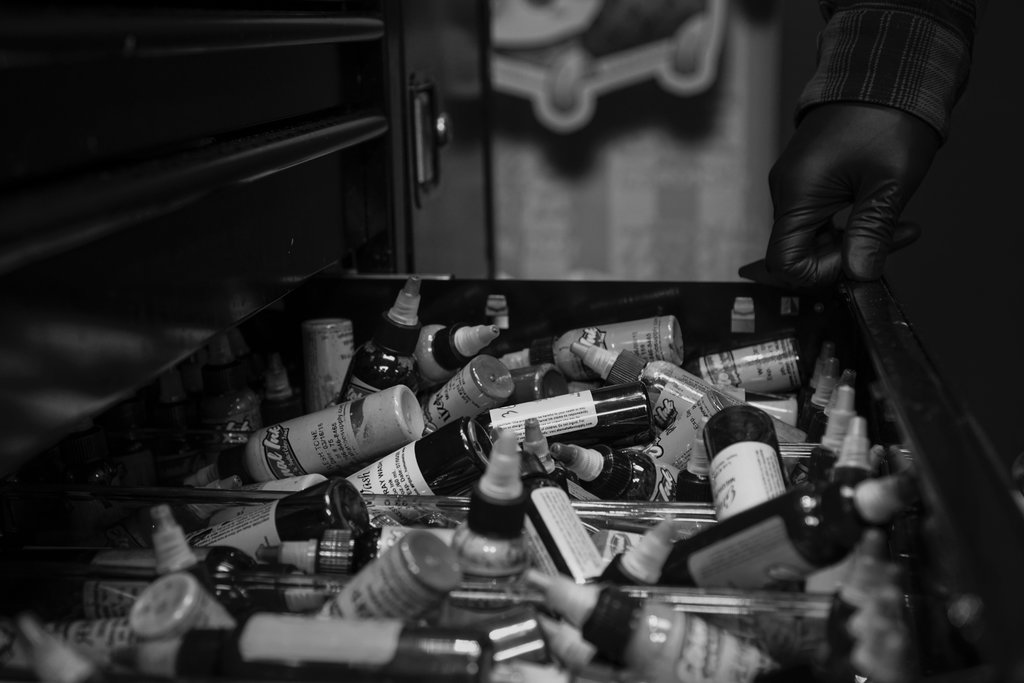
Our body’s chemistry changes constantly. Perhaps when you initially got your tattoo, you weren’t sensitive to the tattoo ink. But over time, something happened in your environment.
Maybe you’re aware of when it happened, or maybe not. But whatever it was, it affected your body chemistry, and thus, eventually caused your body to start reacting to the tattoo ink.
Or, perhaps you have a seasonal reaction to the ink. Some ink pigments contain traces of heavy metal; these often cause tattoo itching when exposed to the sun. Those affected usually experience this during hot, summer months.
For others, their tattoos itch during winter. Perhaps it’s due to a condition known as ‘winter itch’ where the skin dries out faster. In this case, you need more frequent moisturisation.
- You have an underlying medical condition
There’s a whole host of reasons why an old tattoo may itch. It may be due to any medical condition (pre-existing or a newly developed one). If you experience other symptoms apart from the itchy tattoo, then you may need to seek expert medical opinion. Hopefully, it’s nothing serious!
Here’s why you SHOULDN’T scratch your itchy tattoo
Check out what this tattooist has to say about scratching itchy tattoos:
In addition to what the tattooist said, here are more reasons why you should refrain from scratching:
- You can accidentally remove some of the ink
When your tattoo starts scabbing or peeling, it’s going to itch. But don’t get tempted to scratch. If you do, then you risk pulling off some scab or peeling skin prematurely, which can also pull some of the ink from underneath. You’ll be left with a patchy tattoo and you may end up getting a touch-up session sooner than expected!
- You can transfer germs and bacteria to your tattoo
If you’ve got long fingernails, then chances are it’s got a lot of germs and bacteria hiding underneath. When you scratch your new tattoo, the germs can transfer to the healing wound, which can, of course, start an infection. You can minimize the risk by cutting your fingernails short and washing your hands before making any sort of contact with your tattoo.
- You can cut your skin
The last thing you want to happen on a healing tattoo is to get another cut on top. Fingernails are hard and tough, and can definitely cut the skin. If this happens, some of the ink can leak out, especially if it hasn’t settled properly in the dermis.
If the cut is deep enough to draw some blood, then it may scar in the future. Also, the cut adds another entry point for germs to get in the skin and start an infection.
- You can delay the tattoo healing process
Well, any of the 3 scenarios described above can delay the tattoo healing process. Obviously, that’s never anyone’s objective. We all want our tattoos to heal as fast as possible. Why suffer an extra day when you don’t have to, right? So, next time you feel the itch, stop yourself and think about the long-term effects of scratching your tattoo.
What can I do – or put – on my tattoo for itch relief?
Alright, so by now you’ve learned you shouldn’t scratch your tattoo. So, what can you do instead? Well, here are some tips you can follow to get some relief!
1. Moisturise, moisturise, moisturise
You need to step up your moisturising game when you get inked. Your tattoo’s appearance literally depends on it. If you hate putting anything on your skin, you’ll need to rethink that because if the itch becomes unbearable, you only have yourself to blame!
Your tattooist will, hopefully, educate you on the importance of moisturising as part of the tattoo aftercare process.
Now, when applying lotion to healing skin, it’s best to put on a very thin layer only. This allows the skin to breathe and not cause the area to get soggy. Carefully remove any excess lotion, making sure not to snag on any loose skin.
The TattooMoisturiser team highly recommends After Inked. We’ve used various lotions and creams as part of tattoo aftercare, but nothing comes close to the overall value that this brand provides!
Firstly, it’s made primarily with grapeseed oil, so it’s got all the natural healing and moisturising properties of this potent antioxidant. Secondly, other ingredients include shea butter, glycerin, jojoba seed oil, and beeswax. It’s formulated especially for tattoos, so it will keep your ink – and your skin – safe.
Best of all, it’s priced very fairly. A 90ml tube costs about 18 quid, so you’re certainly getting excellent value for your money since you only need to apply a very small amount!
Related article: The Best Tattoo Aftercare Lotions, Ointments, and Creams
2. Apply ice or cold compress
For unhealed tattoos, don’t apply ice or cold compress directly to the itchy spot. Instead, you need to put a clean cloth between the ice and your tattoo to act as barrier. This technique also prevents germs from the compress from getting into the skin.
For older tattoos, you can apply the ice directly to the spot, but you’ll need to take it off frequently if you don’t want to end up getting an ice burn.
3. Take a cold shower
Anything cold that hits the itchy spot is a great idea, really. But a cold shower will also take your mind off other things. Just make sure you do it really quickly to avoid soaking the skin and ruining your tattoo!
Here’s how showering with a new tattoo works: https://tattoomoisturiser.co.uk/showering-with-a-new-tattoo
4. Gently pat the itchy spot
This is a temporary solution, but it works simply because it distracts your attention from the itch. Note that the keyword here is ‘gentle.’ For healing tattoos, a hard slap can cause some ink to leak out!
5. (For old tattoos only) Use OTC anti-itch relief
You can buy anti-itch creams (such as hydrocortisone) at the chemist or supermarkets in your area. Or, you can also take an antihistamine, if necessary. Just make sure your tattoo is well-healed before applying any anti-itch creams. Otherwise, you risk delaying your tattoo’s healing.
6. (For old tattoos only) Soak in a relaxing bubble bath
Obviously, this is a bad idea for a healing tattoo. But for old tattoos, soaking in the bath is effective at providing anti-itch relief. You can also add your favourite essential oils or colloidal oatmeal to help soothe the itch.
If none of these tips work for you, perhaps you’ve got something else going on as well. If you suspect your condition is worsening, please seek professional medical advice straight away.
Conclusion
An itchy tattoo can test your patience. You’ll come close to scratching it many, many times. You’ll probably give in a few times over the course of the healing process, but try your best not to! Hopefully, this article will help provide relief and stop tattoo itching ASAP.

